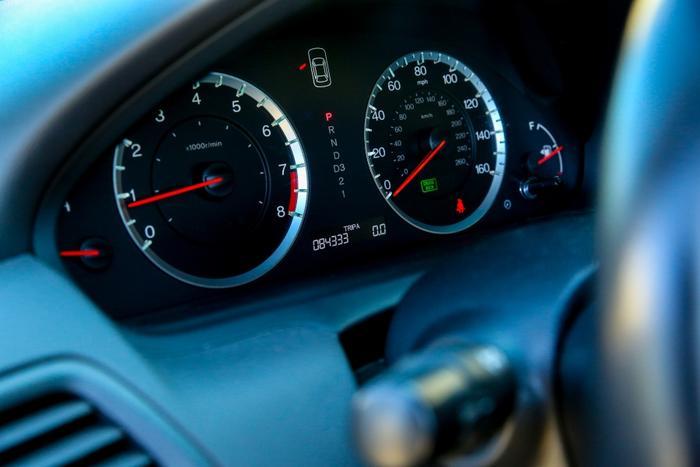You look for a second-hand car, and you happen to get an offer that seems to be the best for you. Looking at the price of that vehicle, you know that your wallet is within reach. The look is fantastic, too.
You are about to submit your bid, but suddenly you have a second thought: Why is the dealer selling the car? Is the car in good condition? What if there's something he hides from me? Is this car worth that much? By getting all your answers to these questions, it important to get your vehicle history report.
A vehicle history report can provide various details on a car, such as accident history and damage, title information, and more. Usually, you can get one online or from some car dealerships. While a vehicle history report will tell you a lot about a car's history, you should also examine the car and take it for a test drive to help decide that it is not a clunker.
The process of car-buying can be difficult, particularly if you are considering a used vehicle. How can you be sure that the car is ready for the fast lane if you buy it? A vehicle history report will help.
A report on a vehicle's background will tell you what happened in the past of a vehicle. The report provides descriptions of who owned the car, their work on the vehicle, and whether there were any incidents in the vehicle.
This knowledge will help you check if the vehicle has hidden problems if you're buying a used car. As a seller, presenting prospective customers with a vehicle history report will alleviate their worries about the car's history, potentially making selling the car easier.
Let's look at the key details contained in a report on the history of a car, where you can get one, and what you will do after learning your vehicle's history.
In A Vehicle History Report, What Details Can I Find?
Accident History And Damage

This should be reported in the vehicle history report if the vehicle was involved in any significant incidents or if it had flood damage. This data will help you decide if the car will still be safe to drive.
If you have bought a used car, have a free VIN number check to learn the history or damage your vehicle had.
Previous Owners And How The Vehicle Was Used
This data is important to understand how the vehicle was used in the past. Have several owners been there? Is the car used for personal or company use? As a rental car or taxi, did it encounter possible wear and tear?
Title Information And Liens
A car's title history, including any salvage-title branding, should be included in the vehicle history report. A salvage title suggests that the car was deemed a complete loss after an accident or burglary. A car with a salvage title can need extensive roadside repairs or have secret issues, and driving a salvage-title vehicle is illegal in some states.
The title information will also help you ensure that the car's actual owner is the seller.
Service History And Recall Notices
The service details of a vehicle will indicate how well the previous owners maintained it. If the car has any open recalls that you will need to fix, the report should also let you know.
Odometer Readings

The report should include the latest odometer reading of the car. The seller could have rolled back the odometer, a red flag when purchasing if that number does not match what the odometer indicates when you look at the vehicle.
Where To Get A Free Vehicle History Report?
You'll usually need to have the vehicle identification number, or VIN, to get a vehicle history report. You can find the 17-digit number usually on the lower left side of your car's windshield, on the car's identification card and insurance papers.
You can use a range of websites to get a vehicle history report, such as Vinreport, once you have the VIN. You might be able to get a vehicle history report for free if you're purchasing a used car from a dealer or shopping via an online marketplace.
After Having A Vehicle History Report, What Should I Do?
Although you can tell a lot about a car from a vehicle history report, it won't give you the full story. A car's background report is just as accurate as the details reported by police departments and insurance companies. If an accident has not been reported, it will not appear in the study. And even though it has been registered, it could take months for a vehicle history report to appear.
There are a few things that you can do to help you get a complete picture of the condition of the vehicle before you decide to purchase it.
Get An Inspection
A vehicle history report will not tell you how the vehicle is currently running if there are any wear and tear, or whether minor changes, such as a tail light replacement, are required. An independent mechanic's pre-purchase inspection will help you find any technical problems and give you a sense of the durability of the vehicle.
Take a Test Drive

Take the car for a spin before you buy it to see how it works. On roads, highways, and hills, drive the car and pay attention to details such as the suspension, braking, steering, and how the car accelerates.
Bottom line
Getting a vehicle history report is the first step you must take in researching your car. Before handing over your money or taking out a car loan, make sure to test drive the vehicle and have it inspected. It can be daunting to buy a used car, but doing your homework can help you avoid ending up with a bigger problem.
Vehicle history reports will show the hidden issues of the vehicle you want to buy. If you are shopping for used cars, before making your bid or calling the owner, always obtain a report for your ideal used car. In most cases, online ads from the dealer include the VIN of the car or a free vehicle history report, or both. Bear in mind that the first step in buying used cars is a vehicle history report.
Call me Jen Hensey, a writer and blogger of LifeStyleConvo & UrbanHouses, who worked as a full-time content creator. A writer by day and a reader by night.





